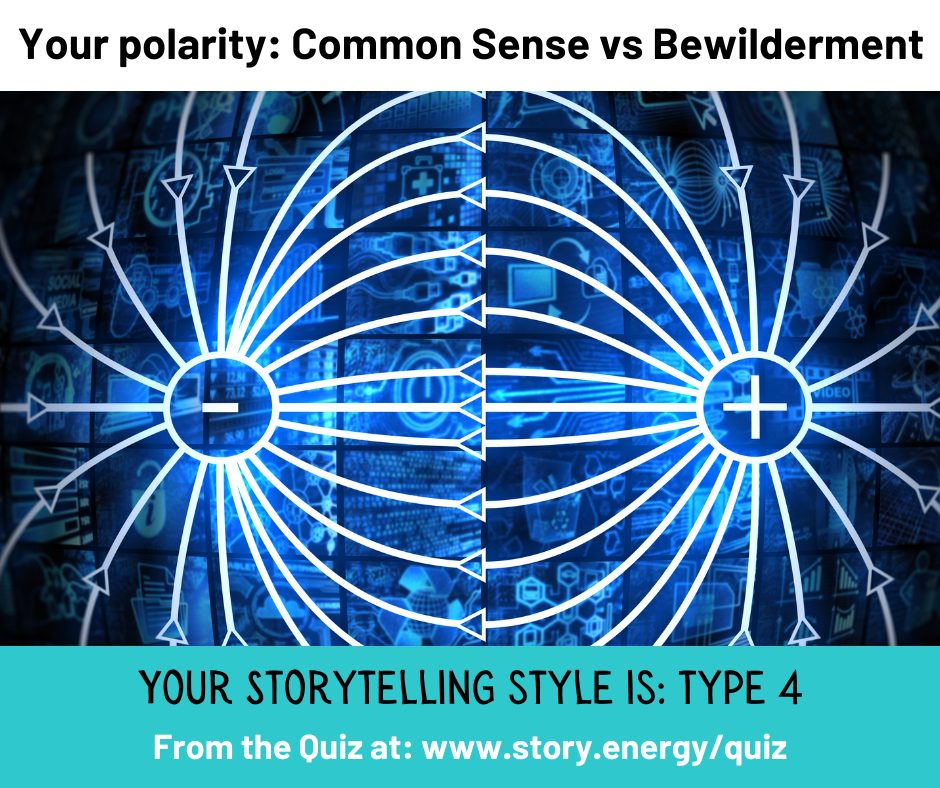Storytelling Style 4

Enneatype 4 is called The Artist, The Elite, or The Individualist
The personal evolution of the Romantic is propelled through a tension created by their fixation: the need for authenticity and significance and the fear of being ordinary or insignificant, which reflects the polarity of common sense versus bewilderment. By embracing this tension as a tool for storytelling, the Romantic creates stories that honor both sides of this polarity. Through the act of storytelling, they explore the nuances of their own psyche, moving closer to their personal truth and achieving a level of personal growth that is both transformative and cathartic.
When Storyweaving, your work channels the spirit of:
LUCIDITY and the Domain of INTELLECT
Your Storytelling Style is the orientation of your Ego Fixation, AKA your enneagram type.
Once upon a time, there was an author whose fixation on authenticity and significance had led them to a constant search for their own personal truth. They were driven by the need to create stories that honored their own unique perspective, yet were plagued by the fear of being seen as ordinary or insignificant.
As a Storytelling Style 4, the Romantic used this tension as a tool for storytelling. Through their writing, they explored the complexities of their own psyche, embracing both sides of the common sense-versus-bewilderment polarity. Their writing reflected their intense desire for authenticity and significance, while also delving into the deeper meanings behind these desires.
Inspired by other famous artists and writers, such as Sylvia Plath and Edvard Munch, the Romantic saw their own fixation as a path to personal growth and transformation. Through their stories, they explored the complexities of emotion and the hidden depths of the human psyche.
Through the act of storytelling, the Romantic achieved a sense of catharsis and understanding. They learned to embrace both the darkness and light within themselves, finding beauty and significance in even the most ordinary moments.
As the Romantic continued to write, they found that their own personal evolution was propelled forward by their fixation. They learned to embrace their uniqueness while also acknowledging their own vulnerabilities and fears. By sharing their own struggles and triumphs through their writing, they were able to connect more deeply with readers and create stories that were both meaningful and inspiring.
The truth your stories help us remember:
"The awareness that all individuals are born as a result of natural, objective laws; that these laws continue to operate within them throughout their lives. Because all the laws are interconnected, each individual always has an intimate physical connection with the Totality of Reality - the Cosmos. From this springs true originality." -Ichazo, 1972
Your storytelling shadow may sound like:
“Nobody understands what I’ve been through. I’m above the rules and should be exempt from ‘normal’ responsibilities.”
See, your Storytelling Style is what it is, because The Art of Transformational Storytelling is YOUR vehicle for transforming YOURSELF, with a side effect of transforming your audience.
We have made a powerful in depth course on this topic exactly:
More details about type 4:
Type 4 Distorted Instincts
Fixation: Resentment
Passion: Envy
Type 4 Undistorted Instincts
Holy Idea: Holy Origin
Virtue: Equanimity
Type 4 Emotional Polarities:
Equanimity vs Envy
Type 4 Obsessive Polarities:
Special vs Ordinary
What causes me stress:
People or experiences not living up to my romantic ideals or desire for intensity. Wanting more than what I have. Envying others for what I perceive they have that I do not. Unmanageable feelings, especially in emotional crises.
The nature of my anger:
Fiery outbursts or dissolving into tears. Depression.
The ultimate goal of my development:
To realize that in the present moment we are loved and completely whole, lacking no essential quality or ingredient, that we are interconnected and at one with all life.
How I can further my development:
Focus on what is positive right now rather than on what is missing. Maintain a consistent course of action despite fluctuating and intense feelings. Participate in physical activities and helping others to become less self-absorbed. Delay reacting until intense feelings subside. Appreciate the simple pleasures in life.
What hinders my personal development:
Letting my strong feelings run the show and falling into inaction. Resisting changing “who I am” for fear of losing my individuality. Feeling I won’t measure up. Feeling the world will let me down. Getting self-absorbed. Downplaying improvement that is not dramatic and becoming discouraged.
How others can support my development:
Encourage me to keep my attention on what is positive in the present. Honor my feelings and my idealism. Reveal their real feelings and true reactions. Let me see that they really understand me instead of trying to change me.
Wounding Childhood message:
“It’s not ok to be too much or not enough.”What type 4’s long to hear is “You are seen and loved for who you are.” Hearing this and understanding this allows the 4 to have a weight lifted off of them.
FAMOUS FOURS
Photographer Diane Arbus, Painter Francis Bacon, Charles Baudelaire, Ingmar Bergman, Poet John Berryman, Marlon Brando, Richard Brautigan, Jackson Browne, Raymond Burr, Singer Kate Bush, Mary Chapin Carpenter, England's Prince Charles, Judy Collins, James Dean, Johnny Depp, Neil Diamond, Isak Dinesen, Novelist Michael Dorris, French novelist Marguerite Duras, the music of Pink Floyd, the cultural aura of France, Judy Garland, Martha Graham, Singer Nanci Griffith, Billie Holliday, Julio Iglesias, Michael Jackson, Janis Joplin, Naomi Judd, Harvey Keitel, Jack Kerouac, Poet Philip Larkin, Charles Laughton, T.E. Lawrence, Marcello Mastroianni, Author Mary McCarthy, Carson McCullers, Rod McKuen, Thomas Merton, Author Yukio Mishima, Joni Mitchell, Jim Morrison, Singer Morrissey, Edvard Munch, Stevie Nicks, Author Anaïs Nin, Nick Nolte, Laurence Olivier, Edith Piaf, Sylvia Plath, Edgar Allen Poe, Novelist Anne Rice, Arthur Rimbaud, Françoise Sagan, Poet Anne Sexton, Percy Shelley, Simone Signoret, Singer Paul Simon, August Strindberg, Edna St. Vincent Millay, Vincent Van Gogh, Author Robert James Waller, Alan Watts, Naomi Watts, Orson Welles, Australian novelist Patrick White, Tennessee Williams, Virginia Woolf.
